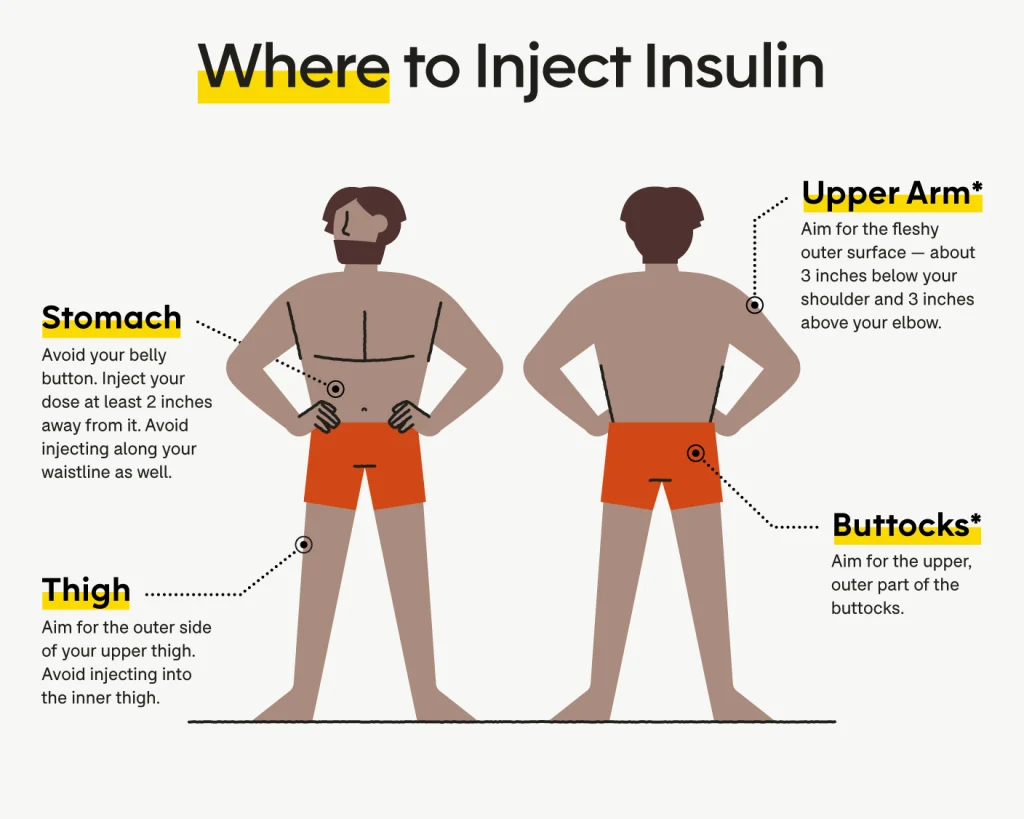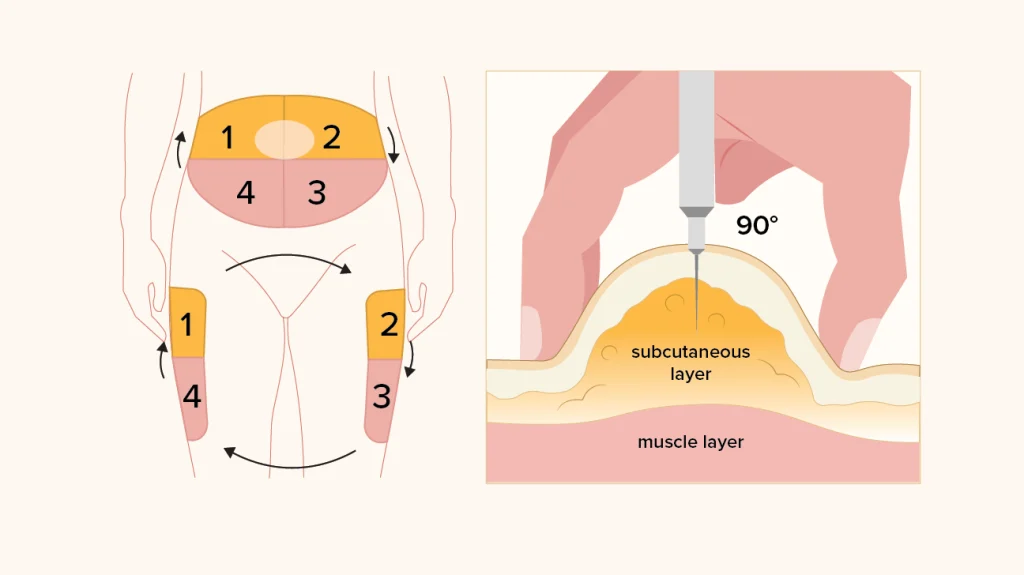Diabetes Treatment
There are many treatment options available to help manage diabetes. The right treatment for you depends on your specific needs, and these may vary based on the type of diabetes you have. In Kenya, diabetes treatments are becoming more accessible, and your healthcare provider can guide you to find the most effective options.
Your diabetes treatment may be different depending on what type of diabetes you have. Read more about:
- Type 1 diabetes treatments
- Type 2 diabetes treatments
- Gestational diabetes treatments
- Other types of diabetes
You can find out more information on the different diabetes treatments below:
- Insulin
- Metformin
- Diabetes tablets and medication
- Healthy Eating
- Exercise
- Technology
- Weight Loss Surgery
- Type 2 Diabetes Remission
- Immunotherapy
- Emotional Support
Insulin Therapy
For people with type 1 diabetes, insulin is a necessary medication. Some individuals with type 2 diabetes and gestational diabetes may also need insulin. Insulin helps manage blood sugar levels and prevent long-term health issues related to diabetes. If you’re unsure about how to inject insulin, your healthcare provider can demonstrate how to do it safely.
Metformin
Metformin is the most common medication for managing type 2 diabetes and is also used for some cases of gestational diabetes. It reduces the amount of glucose produced by the liver and helps your body’s insulin work more effectively. Metformin can be taken on its own or combined with other diabetes medications, including insulin.
Diabetes Tablets and Other Medications
Several medications are available for diabetes, including SGLT2 inhibitors and weight loss medications. These drugs work in different ways to help control blood sugar levels, manage weight, and prevent complications.
Healthy Eating and Exercise
Maintaining a healthy, balanced diet is a crucial part of managing diabetes. Eating the right foods can help regulate your blood sugar levels and maintain a healthy weight. Additionally, staying physically active—whether it’s walking, swimming, or even stretching at home—helps control diabetes and improves your overall health.
Diabetes Technology
Innovative diabetes technology, such as insulin pumps and continuous glucose monitors (CGMs), can play a significant role in helping people manage their diabetes more effectively. These devices make it easier to monitor blood sugar levels and adjust insulin doses as needed.
Weight Loss Surgery
Weight loss surgery, also known as bariatric surgery, is an effective long-term treatment for type 2 diabetes. Studies have shown that bariatric surgery can help people with type 2 diabetes achieve remission and maintain healthy blood sugar levels without medication.
Type 2 Diabetes Remission
It is possible for people with type 2 diabetes to achieve remission by lowering their blood sugar levels to a non-diabetic range and maintaining those levels for at least three months without medication. Remission can often be achieved through significant lifestyle changes, weight management, or weight loss surgery.
Immunotherapy
Immunotherapy is an emerging treatment for type 1 diabetes. This therapy reprograms the immune system to stop attacking insulin-producing cells in the pancreas. While still in the research and clinical trial phase, immunotherapy offers hope for preventing or halting type 1 diabetes.
Emotional Support
Living with diabetes can be challenging both physically and emotionally. In Kenya, it’s essential to have access to support systems that help manage not only your physical health but also your emotional well-being. Whether you’re newly diagnosed or have been living with diabetes for a long time, reaching out for help when you’re feeling stressed or overwhelmed is crucial.
Support and Resources
If you have questions or need support managing your diabetes, there are plenty of resources available. Healthcare professionals can guide you on medication, diet, exercise, and emotional well-being. Stay informed and connected with diabetes support groups and resources to manage your condition effectively.
Support After Diagnosis
If you or someone you know is diagnosed with diabetes, the next step is to receive proper treatment and support. You will work with your healthcare team to manage the condition, including lifestyle changes such as diet, exercise, and medication.

